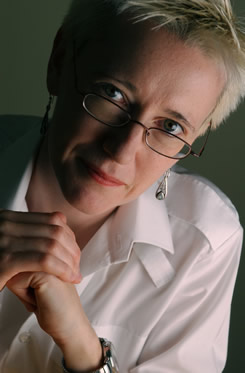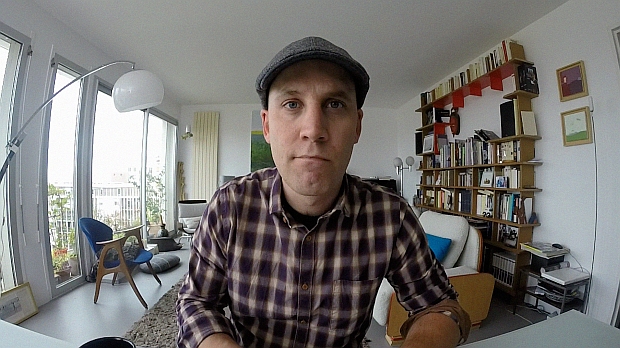This Way Up for Saturday 2 May 2015
Junk DNA
 It cost more than $100 million to sequence the human genome back in 2001. Today there are companies offering to do it for just over $1000!
It cost more than $100 million to sequence the human genome back in 2001. Today there are companies offering to do it for just over $1000!
As well as deciphering the code of life, the Human Genome Project also revealed that only a very small percentage of our DNA actually makes proteins. The rest of the genome was dismissed as junk, because it seemingly had no function.
That was more than a decade ago. Today it's widely accepted that 'junk' DNA is actually very far from worthless. In fact it could actually play a vital role in what makes us human!
Nessa Carey is a scientist who also works in the biotech and pharmaceutical industries and has written Junk DNA: A Journey Through The Dark Matter of the Genome (Icon Books).
She told This Way Up's Simon Morton, 'People describe junk DNA as being bits of the DNA that have no function, but more and more we keep finding functions for various bits of junk DNA, so then, sort of by definition they can't be junk anymore. So it's one of those situations where biologists have created a term and then keep tripping themselves up by discovering that not everything fits very nicely into that definition'.
Tech - broadband performance
Internet users might have noticed that the network's been pretty slow and clunky in the evenings recently. So could the recent rise in video streaming on demand services like Ligthbox and Netflix be to blame?
We speak to technology commentator Richard Griffin and John Butt of TrueNet, an independent monitoring organisation that measures the performance of New Zealand's internet broadband network.
Naked Science - screening for obesity
Dr Chris Smith of The Naked Scientists brings us the latest science news. This week, getting damaged spinal nerves to regrow in rats, and a possible way to screen for obesity.
Electric vehicles and rapid charging

Even if you believe that filling up your car or truck with imported fuel isn't necessarily the best option for New Zealand (or the planet), finding an affordable electric alternative isn't easy.
The reasons why electric vehicles, or EVs, haven't taken off in New Zealand are many and varied; try cost, battery life, and the hassle of charging for starters. Could that change in the not too distant future though, with the electric car becoming an affordable transportation option for all drivers?
Well Steve West is banking on it. He's the developer behind the Serato DJing software, and he's also an electric car fan who's campaigning to get more people driving EVs here in New Zealand.
Mr West is putting nearly $1million of his and other investors' money into building a nationwide network of 23 fast charging stations by the end of this year.
Recharging an electric car using mains power takes hours, but one of these rapid chargers can do the job in about 25 minutes. And Mr West is hoping that this will prove a breakthrough for consumers.
He took This Way Up's Simon Morton for a drive in his Tesla Model S electric car, one of just six in New Zealand.
Do Not Track

Photo: supplied.
Brett Gaylor is a Canadian filmmaker whose new documentary focusses on the sometimes shadowy industry that's surrounds tracking and sharing information about your online activities.
Because most of the time you trawl the internet, like or comment on something, or use an app, somebody is recording what you do. Then this information is being shared with others to present you with more effective, targeted ads.
Mr Gaylor's seven-part online documentary, called Do Not Track, is clever about how it presents this story too. It puts you at the centre of the action by asking you to share information about your favourite websites so you can see how they spread information about you around the web.
Mr Gaylor told This Way Up's Simon Morton that "We are all commodities in a way...With the web we have got used to the idea that everything is free, that you can look at your favourite newspaper or you can watch funny videos on You Tube. But there is no such thing as a free lunch...! Someone is paying to get your attention."
Link: DisconnectMe